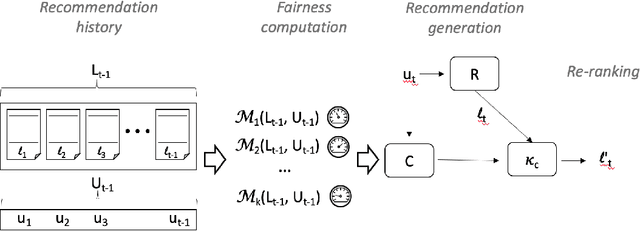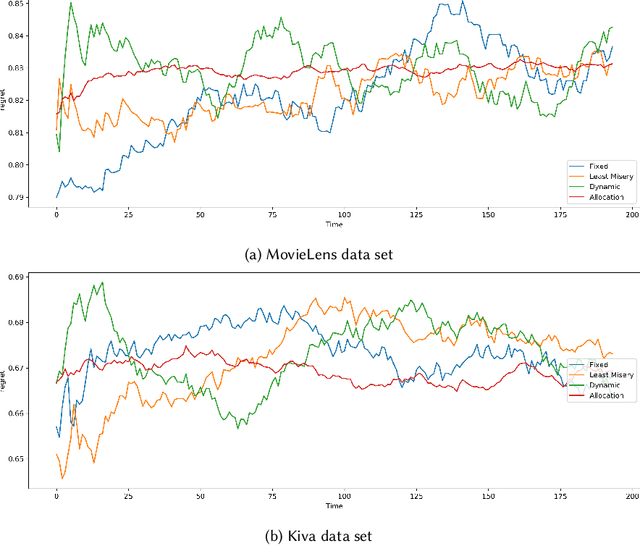"And the Winner Is": Dynamic Lotteries for Multi-group Fairness-Aware Recommendation
Paper and Code
Sep 05, 2020



As recommender systems are being designed and deployed for an increasing number of socially-consequential applications, it has become important to consider what properties of fairness these systems exhibit. There has been considerable research on recommendation fairness. However, we argue that the previous literature has been based on simple, uniform and often uni-dimensional notions of fairness assumptions that do not recognize the real-world complexities of fairness-aware applications. In this paper, we explicitly represent the design decisions that enter into the trade-off between accuracy and fairness across multiply-defined and intersecting protected groups, supporting multiple fairness metrics. The framework also allows the recommender to adjust its performance based on the historical view of recommendations that have been delivered over a time horizon, dynamically rebalancing between fairness concerns. Within this framework, we formulate lottery-based mechanisms for choosing between fairness concerns, and demonstrate their performance in two recommendation domains.
 Add to Chrome
Add to Chrome Add to Firefox
Add to Firefox Add to Edge
Add to Edge